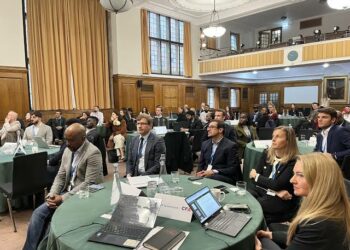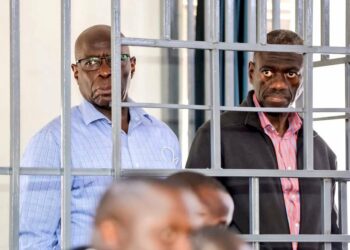Once again hopes are lost for schools; we are not able to open schools yet. It is also important to know that at least teachers need to be vaccinated. Hence, the education sector remains the biggest casualty during this trying Coronavirus epidemic time. Media has exposed the challenges of thousands of teachers who have lost their jobs, livelihood and are pushed to the fringes of society. But not much has been written about the myriad of struggles faced by the learners. Perhaps they are unable to articulate their problems and are unable to offer solutions to those in charge of their education.
Our children have stayed at home for the most part of this year. Online or virtual education is just a novel idea rather than a practical and affordable education. This modern method of education may be good for the grown up and mature learners rather than for those who are still in primary or even in secondary level of education.
The nation is uncertain about the time of opening the schools, how to put in place Standard Operating Procedures in opening the school, how to deal with this lost year, how to meet the unforeseen expenses in the education sector and many other practical concerns. It is a matter of fact that both the public and private education providers are cash trapped in opening educational institutions.
At the wake of Coronavirus induced Lockdown, digital or online learning came handy. Though it can be a good alternative to classroom learning, there are many other emerging problems that have not been paid attention and solutions explored. One such issue is the remoteness of relationships which is unhealthy for learning.
The question is very simple, ‘Can a slow learner or even an average performer who struggles to learn in a class through a concrete physical environment can learn and grasp complex theories in a remote person-less teaching environment?’ Education is real, not virtual. Education will always remain a ‘relationship of exchange’, rather than just imparting a set of knowledge or skill.
At the surge of Coronavirus, the Department of Education in Vatican issued a thought-provoking document on the challenges of education during COVID 19, highlighting the importance of relationship, communal sharing, need for cooperation between the Church (and other Faith-Organisation) and the government in respective nations. Thus it insists on making education inclusive for all sections of the society, and places caution on difficulties posed by distance learning and more emphasis on technology rather than human person.
As the history of education has shown, the Christian thought and practice places the human person central in all questions; the Church invites all stakeholders to place the human person (here the young learner) to be placed in the center of the teaching and learning process. It insists on relationships rather than any other concern. Despite the world’s educational system taking a battering under the Covid-19 pandemic with distance learning, the Vatican reaffirms the direct and interpersonal relationship of exchange and dialogue between teachers and students as indispensable for the learning process.
While in Uganda we are still discussing and preparing to open the educational institutions, many schools and universities around the world are beginning a new academic year, many continue to rely on remote learning to prevent the spread of the coronavirus among faculty and students.
In its letter, the Vatican department of education said that although digital platforms have allowed for education to continue, they also have brought to light “a marked disparity in educational and technological opportunities.”
They also note that several millions of children will not be able to access education in the coming years, increasing the already existing educational gap. The children from the poor and lower income families do not have means to facilitate their children the digital learning. For instance, in Uganda there are millions of families without electricity and facilities for telecommunication. Teachers too are not trained to handle this type of education. This will surely widen the gap between the richer/urban and the poor/rural that the country already has.
Besides this educational disparity, the document is very concerned about the importance of in-person learning and interaction with the students and teachers which it considers “indispensable for the formation of the person and for a critical understanding of reality.” While we adapt to remote learning through digital platforms and keeping physical distance we should keep in mind the real objectives and values of education, that is bringing people together and learning to interact and building a human family.
Because in classrooms, lecture halls and laboratories, we grow together and build a sense of identity in relationships. At all ages of life, but all the more so in childhood, adolescence and early adulthood, the process of psycho-pedagogical growth cannot take place without an encounter with others, and the presence of the other provides the necessary conditions for creativity and inclusion to flourish.
Relationships which are vital in education cannot find sufficient home in the interaction mediated by a screen or in the impersonal connections of the digital network. The document has wisely noted that “…In the perspective of future school and academic planning, albeit amidst uncertainties and concerns, those responsible for society are called to give greater importance to education in all its formal and informal dimensions by coordinating efforts to support and ensure, in these difficult times, the educational commitment of all.”
The “Circular Letter to Schools, Universities and Educational Institutions” brings out clearly the mission of the Catholic educational institutions especially during this time of Coronavirus epidemic. The Vatican instructs that while distance learning to control the spread of the epidemic, the widening the current educational gap within society should be removed. Due to a lack of economic support from the state, we run the risk of closure or radical downsizing of Catholic educational institutions; however, they have been able, once again, to face the new frontier of educational concerns.
The document insists that education and relationships go hand in hand. It affirms that the process of psycho-pedagogical growth cannot take place without personal encounter with others.
While appreciating the teachers for their selfless service the Vatican calls for robust continuing-formation programs for teachers that can meet the needs of our time without losing the synthesis of faith, culture, and life. While learning through digital screens focus should be on the Human Person while not getting lost in an ocean of screens.
Purpose of education is to put each other at the service others, promoting common good and overcoming divisions of all kinds. More than ever before, in this period of epidemic we need a strong commitment to form a community of networks which will form an educational alliance whose team effort aims at renewing the passion for a more open and inclusive education.
It is time to look forward with courage and hope because our foundation is in Christ – the way, the truth, and the life. If COVID 19 leaves behind greater education disparity between the rich and poor, the gap may never be filled in the future.
Fr. Lazar Arasu SDB
Priest and School Administrator
arasuafrica@gmail.com
Do you have a story in your community or an opinion to share with us: Email us at editorial@watchdoguganda.com












